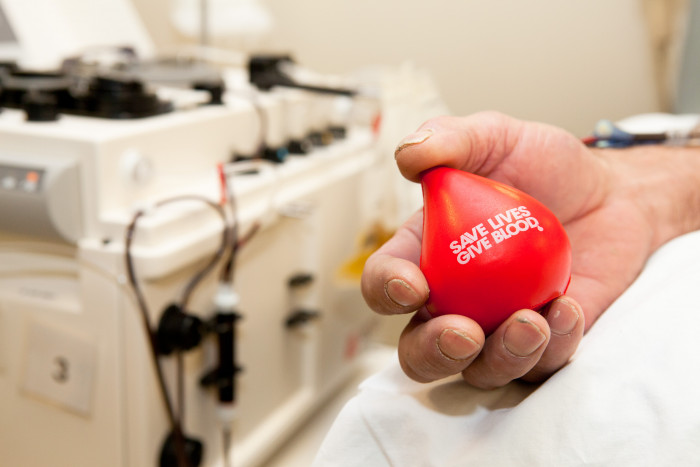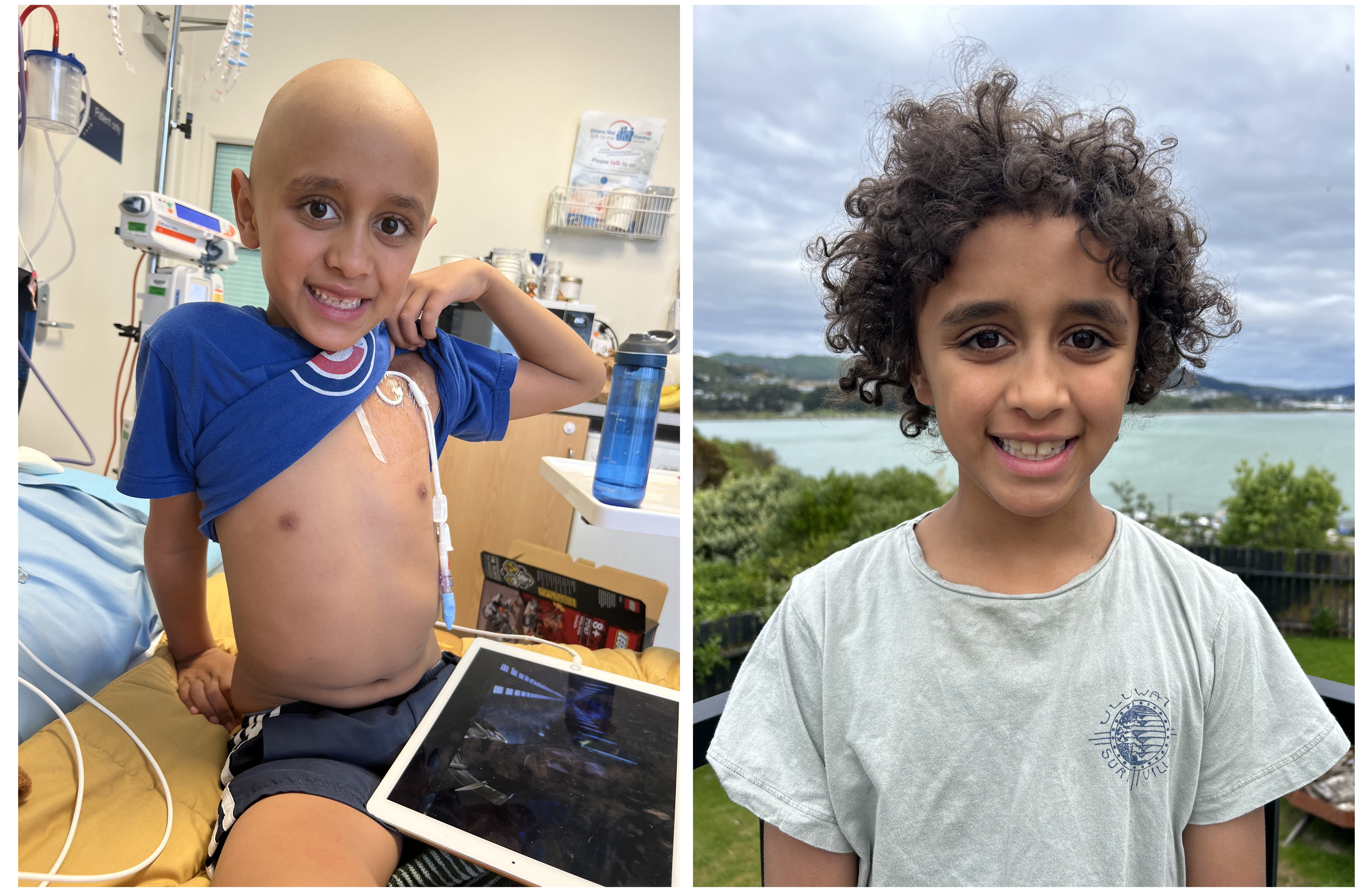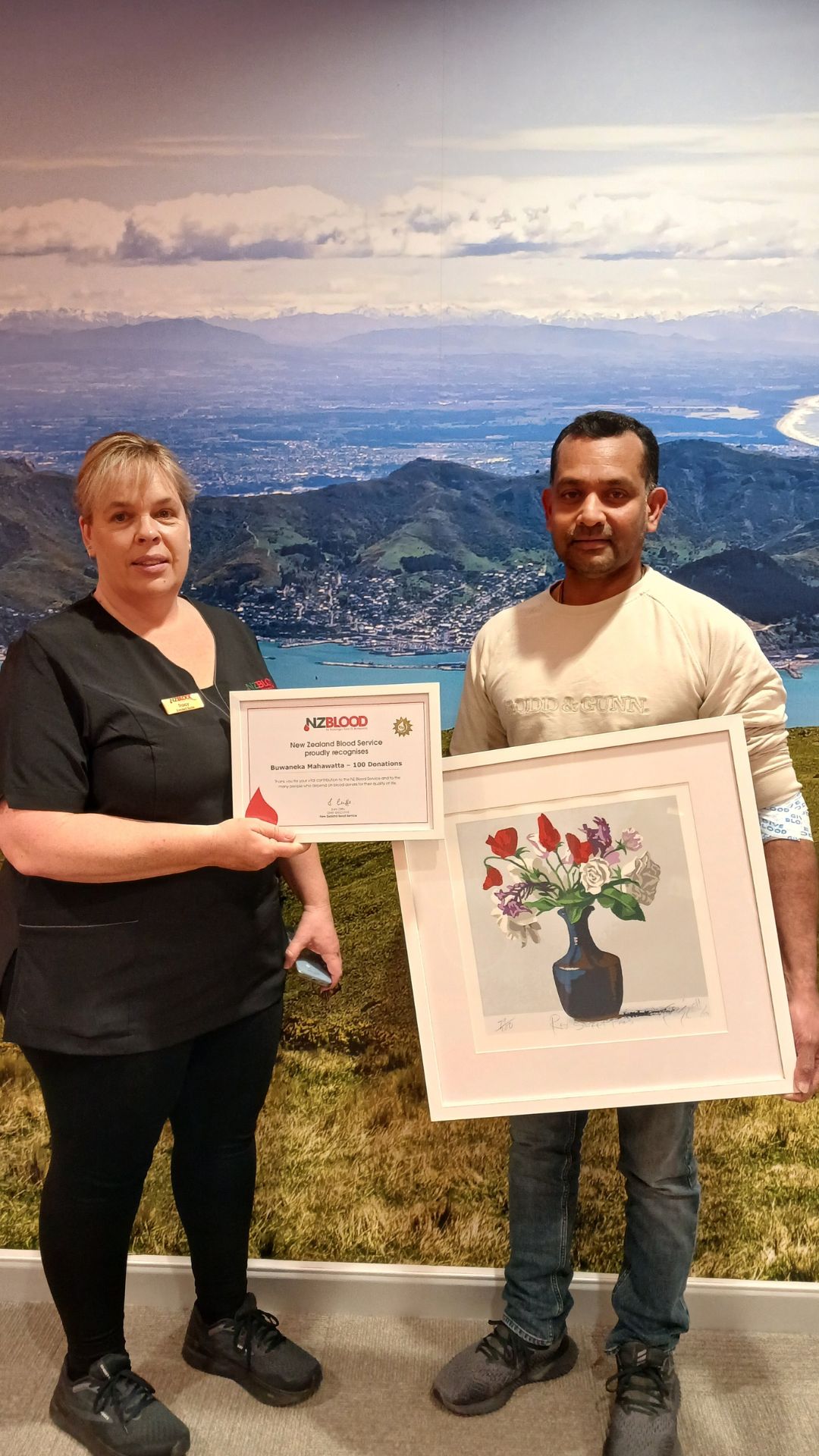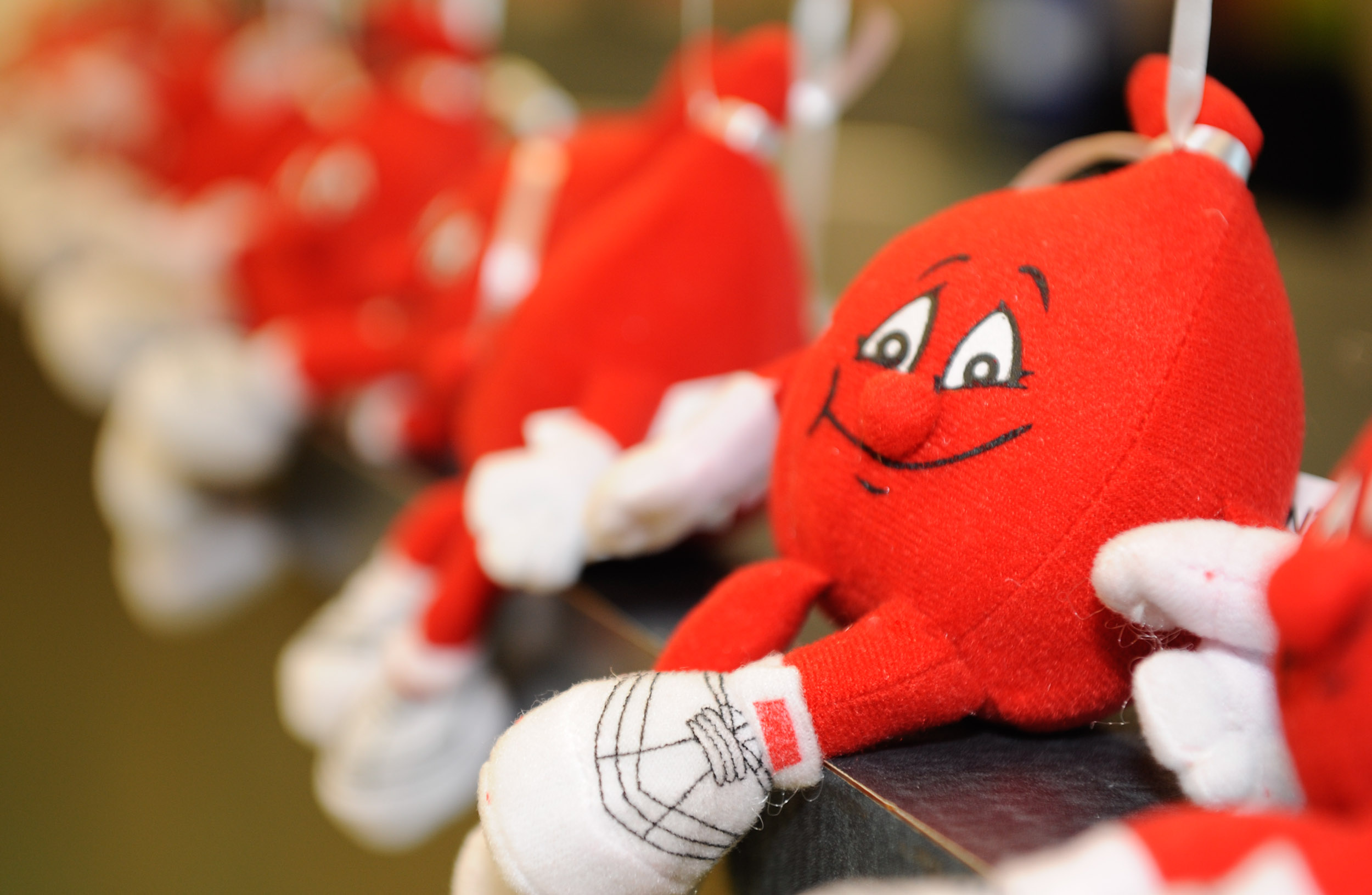Amazing Story
Tom's a long-time donor

My first donation was at York St, Sydney on 18 June 1970, while on my OE. In 1970, Sydney blood donors were part of Red Cross, maybe here too. During WWII my father spent four years in a German POW camp. He often spoke of; ‘but for Red Cross and St John’ he and other POWs may well have starved. Hence Red Cross stood large in my consciousness, seen as an opportunity to give something back.
My second donation was in Gladstone, Queensland and memorable because I fainted. Still on my OE, I was working at the Gladstone Hotel. It was a busy day so there was no time for lunch, then rapid walk to blood collection site. I finished my donation before sitting down with a cup of tea then I fainted - fortunately putting the cup down just beforehand!! This was the only time I fainted and I’m lucky to have been queasy only two or three times.
Another ‘attraction’ of being a donor, it is completely egalitarian. All of us, conscious of others can donate and each donation is treated as equal, no matter our financial or social status or if it is first or 400th which was significant back in the ‘bad old days’ when I was a broke OE’r.
I understand the advantage of relaxing as the needle is inserted and removed. I have no recollection of ever feeling uneasy about insertion of the needle. I watch it being inserted, this way I know precisely when to fully relax. Perhaps the biggest pain is completing the exhaustive form each time before donating.
I’ve made a handful of donations overseas including Sydney, Gladstone, Brisbane, and once in Toronto (1975). At that time Canada really spoiled their donors with special reclining chairs and great food. However NZ has certainly caught up, maybe jumped ahead with comfortable chairs to semi-recline, a nice choice of drinks and biscuits and recognition of donors milestones. I’ve made donations in various centres throughout the North Island and once soon after the quakes, in Christchurch. From 2000, most of my donations were in the Hamilton Blood Donor Centre. It is a great place to donate, perhaps the best in NZ. The team is friendly, prompt and caring. Almost over-caring on the very rare occasions when an issue arises during a donation. Donors are treated really well. I've given approximately 300 donations since turning 60, that is the last 11 years. This is possible as I am donating plasma fortnightly. Donation milestones were never a consideration until the last ten or so years with the milestones of 300, 350 and now 400 donations on the horizon. I don’t expect to get to 500!!
My blood group is O+. This is a very common group; 38% of the population in NZ, peaking globally at 50% in India. O+ blood may also be used in some other group recipients. Because O+ blood is most (constantly) in demand we need the largest number of O+ donors. Today I have an app on my phone that contains my donor ID, future appointments and past donations back to Dec 2004. I can make appointments too.
Over the years of donating I have learnt how my body responds following the donation. Perhaps this awareness is a good outcome of that faint back in 1970. I make sure I’ve had a good breakfast and am well hydrated - at least a litre of water in the hour prior to donation.
My first nearly 200 donations were whole blood, however today I donate almost solely plasma, feeling that I can offer more as donations are fortnightly. The plasma is collected using an apheresis machine that collects whole blood removes the plasma and returns the other constituents to the donor. This process typically takes me 50 minutes. Earlier I made a small number of platelet donations but my blood has an insufficient ratio to give an efficient harvest. In order to reduce the impact of needle scar-tissue, I rotate arms and when practical rotate amongst all four veins.
My philosophy on donating blood is that because I can I offer it as a small service to others. I appreciate many others would like to donate but for any one of many reasons are unable. My previous employers were generous in allowing me time and travel to donate. Today it is part of my gift. There may even be a positive benefit for my body as it learnt to promptly and efficiently replace the donation so may respond similarly were I to lose blood such as in an accident. However this remains an unproven thesis. Conversely there is no evidence making 400 donations has done me any harm.
Tom Davies
My second donation was in Gladstone, Queensland and memorable because I fainted. Still on my OE, I was working at the Gladstone Hotel. It was a busy day so there was no time for lunch, then rapid walk to blood collection site. I finished my donation before sitting down with a cup of tea then I fainted - fortunately putting the cup down just beforehand!! This was the only time I fainted and I’m lucky to have been queasy only two or three times.
Another ‘attraction’ of being a donor, it is completely egalitarian. All of us, conscious of others can donate and each donation is treated as equal, no matter our financial or social status or if it is first or 400th which was significant back in the ‘bad old days’ when I was a broke OE’r.
I understand the advantage of relaxing as the needle is inserted and removed. I have no recollection of ever feeling uneasy about insertion of the needle. I watch it being inserted, this way I know precisely when to fully relax. Perhaps the biggest pain is completing the exhaustive form each time before donating.
I’ve made a handful of donations overseas including Sydney, Gladstone, Brisbane, and once in Toronto (1975). At that time Canada really spoiled their donors with special reclining chairs and great food. However NZ has certainly caught up, maybe jumped ahead with comfortable chairs to semi-recline, a nice choice of drinks and biscuits and recognition of donors milestones. I’ve made donations in various centres throughout the North Island and once soon after the quakes, in Christchurch. From 2000, most of my donations were in the Hamilton Blood Donor Centre. It is a great place to donate, perhaps the best in NZ. The team is friendly, prompt and caring. Almost over-caring on the very rare occasions when an issue arises during a donation. Donors are treated really well. I've given approximately 300 donations since turning 60, that is the last 11 years. This is possible as I am donating plasma fortnightly. Donation milestones were never a consideration until the last ten or so years with the milestones of 300, 350 and now 400 donations on the horizon. I don’t expect to get to 500!!
My blood group is O+. This is a very common group; 38% of the population in NZ, peaking globally at 50% in India. O+ blood may also be used in some other group recipients. Because O+ blood is most (constantly) in demand we need the largest number of O+ donors. Today I have an app on my phone that contains my donor ID, future appointments and past donations back to Dec 2004. I can make appointments too.
Over the years of donating I have learnt how my body responds following the donation. Perhaps this awareness is a good outcome of that faint back in 1970. I make sure I’ve had a good breakfast and am well hydrated - at least a litre of water in the hour prior to donation.
My first nearly 200 donations were whole blood, however today I donate almost solely plasma, feeling that I can offer more as donations are fortnightly. The plasma is collected using an apheresis machine that collects whole blood removes the plasma and returns the other constituents to the donor. This process typically takes me 50 minutes. Earlier I made a small number of platelet donations but my blood has an insufficient ratio to give an efficient harvest. In order to reduce the impact of needle scar-tissue, I rotate arms and when practical rotate amongst all four veins.
My philosophy on donating blood is that because I can I offer it as a small service to others. I appreciate many others would like to donate but for any one of many reasons are unable. My previous employers were generous in allowing me time and travel to donate. Today it is part of my gift. There may even be a positive benefit for my body as it learnt to promptly and efficiently replace the donation so may respond similarly were I to lose blood such as in an accident. However this remains an unproven thesis. Conversely there is no evidence making 400 donations has done me any harm.
Tom Davies
Submitted: 2018-06-11



